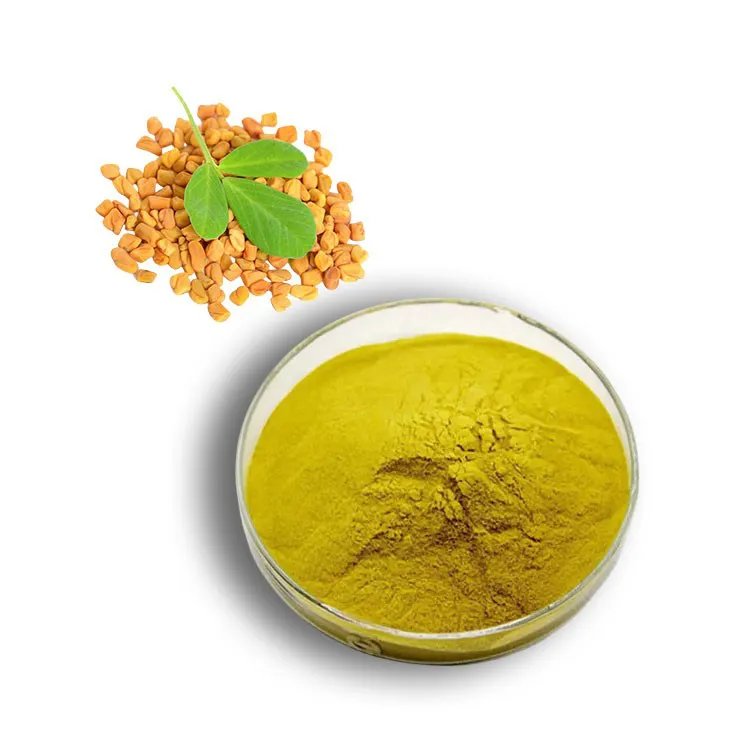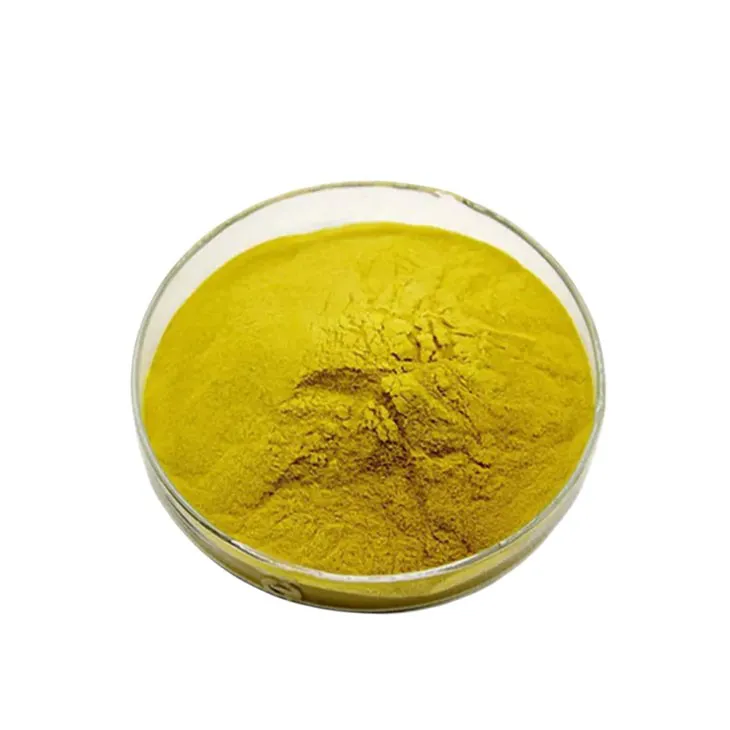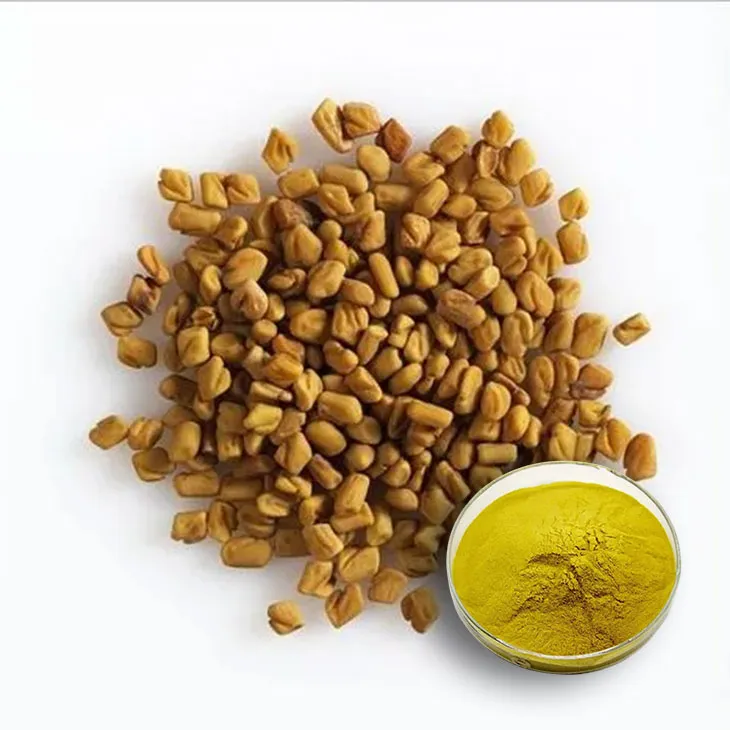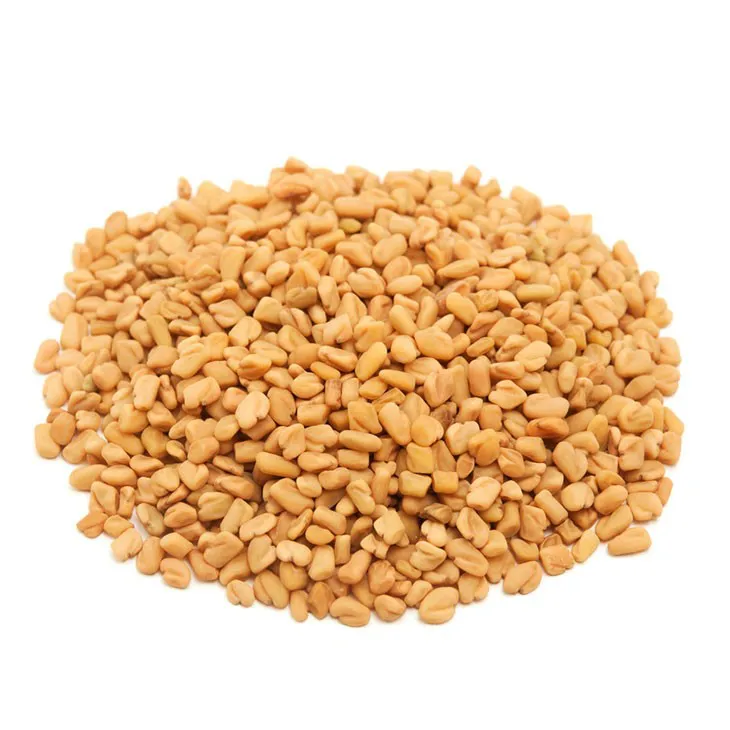- 0086-571-85302990
- sales@greenskybio.com
Examine the various ways fenugreek extract powder is used in the food and beverage industry, from flavor enhancement to health-focused formulations.
2024-07-03

1. Introduction
The food and beverage industry is constantly evolving, with consumers becoming more health - conscious and demanding a wider range of flavors. Fenugreek Extract Powder has emerged as a valuable ingredient that meets both these demands. Derived from the fenugreek plant, this powder has a long history of use in traditional medicine and cooking, particularly in Asian and Middle Eastern cuisines. In recent years, its popularity has spread globally, finding applications in a diverse array of food and beverage products.

2. Flavor Enhancement
2.1. Culinary Applications
Fenugreek Extract Powder is a powerful flavor enhancer in the culinary world. It has a distinct, warm, and slightly bitter flavor profile that can add depth and complexity to a variety of dishes. In savory cooking, it is often used in spice blends for curries, stews, and marinades. For example, in Indian cuisine, it is a key component of many curry powders. The powder imparts a rich, earthy flavor that complements the other spices and ingredients in the dish.
In baking, Fenugreek Extract Powder can also play an interesting role. It can add a unique flavor note to bread, pastries, and cookies. Although used in small quantities, it can transform the overall taste, giving a hint of something different and exotic. Some bakers use it to create artisanal bread with a more complex flavor profile.
2.2. Beverage Flavoring
When it comes to beverages, fenugreek extract powder is equally versatile. In coffee and tea blends, it can add a new dimension of flavor. For coffee lovers, a small amount of fenugreek extract powder can enhance the richness of the coffee, adding a warm and slightly spicy note. In herbal teas, it can blend well with other herbs, creating a more complex and satisfying flavor experience.
It is also being used in the production of some specialty beverages. For instance, in certain health - focused soft drinks or functional beverages, it can contribute to the overall flavor profile while also providing potential health benefits. Some companies are experimenting with fenugreek - flavored sports drinks, where the unique flavor can set their products apart from the competition.

3. Health - Focused Formulations
3.1. Nutritional Benefits
Fenugreek extract powder is rich in various nutrients and bioactive compounds, which makes it a valuable addition to health - focused food and beverage formulations. It contains high levels of dietary fiber, which can aid in digestion and promote a feeling of fullness. This is particularly beneficial for those looking to manage their weight or improve their digestive health.
Moreover, fenugreek is a good source of vitamins and minerals such as iron, magnesium, and manganese. These nutrients are essential for maintaining overall health, including proper immune function, energy production, and bone health. In the context of food and beverage products, this means that fenugreek - containing items can contribute to a more nutritionally complete diet.
3.2. Medicinal Properties
One of the most well - known medicinal properties of fenugreek is its potential to regulate blood sugar levels. For diabetic patients or those at risk of developing diabetes, fenugreek - based food and beverage products could be a valuable addition to their diet. Studies have shown that certain compounds in fenugreek can help improve insulin sensitivity and lower blood glucose levels.
Fenugreek also has anti - inflammatory properties. Inflammation is at the root of many chronic diseases, so incorporating fenugreek extract powder into food and beverages can potentially help reduce the risk of developing these conditions. Additionally, it has been suggested that fenugreek may have a positive impact on cholesterol levels, helping to lower LDL (bad) cholesterol and increase HDL (good) cholesterol.
3.3. Functional Food and Beverage Applications
In the development of functional foods and beverages, fenugreek extract powder offers great potential. For example, in breakfast cereals, adding fenugreek extract powder can not only enhance the flavor but also boost the nutritional value. The fiber content can help keep consumers feeling full throughout the morning, and the potential health benefits can make the product more appealing to health - conscious consumers.
Similarly, in the production of energy bars or snacks, fenugreek can be used to provide a natural source of energy. The combination of its nutrients and potential blood - sugar - regulating properties can make these products a healthier alternative to traditional high - sugar, low - nutrition snacks. In the beverage industry, fenugreek - based smoothies or juices are becoming more popular, as they can offer a convenient way to consume the benefits of fenugreek while also enjoying a delicious and refreshing drink.

4. Challenges and Considerations
4.1. Taste and Acceptability
While fenugreek extract powder has a unique flavor that can enhance many products, it is not universally liked. Some people may find its bitter note off - putting. Food and beverage manufacturers need to carefully balance the amount of fenugreek used to ensure that the flavor is appealing to a wide range of consumers. This may involve conducting taste tests and market research to find the optimal level of inclusion.
4.2. Regulatory Compliance
As with any ingredient used in food and beverage production, fenugreek extract powder must comply with relevant regulatory requirements. Different countries may have different regulations regarding its use, including maximum allowable levels in certain products. Manufacturers need to be aware of these regulations to ensure that their products are legal and safe for consumption.
4.3. Stability and Shelf - Life
Fenugreek extract powder may have stability issues in certain formulations. For example, in some beverages, it may interact with other ingredients, affecting the product's shelf - life or causing changes in flavor over time. Manufacturers need to conduct stability tests to ensure that their products maintain their quality and safety throughout their intended shelf - life.

5. Conclusion
Fenugreek extract powder has a wide range of applications in the food and beverage industry, from enhancing flavors to providing numerous health benefits. As consumers continue to demand both great - tasting and healthy products, fenugreek is likely to play an increasingly important role. However, manufacturers need to overcome challenges such as taste acceptability, regulatory compliance, and stability to fully realize the potential of this versatile ingredient. With further research and development, fenugreek - based food and beverage products are expected to become more diverse and widely available in the market.
FAQ:
What are the main flavor profiles that fenugreek extract powder can add to food and beverages?
Fenugreek extract powder can add a unique blend of flavors. It often imparts a warm, nutty, and slightly sweet flavor. It also has a hint of maple - like aroma, which can enhance the overall taste profile of a variety of food and beverage products. This makes it suitable for use in both sweet and savory items.
How does fenugreek extract powder contribute to health - focused formulations in the food and beverage industry?
Fenugreek extract powder has several health - related properties. It is rich in nutrients like fiber, vitamins, and minerals. It may also have potential benefits for blood sugar control, cholesterol management, and digestion. In health - focused formulations, it can be added to products such as functional drinks, dietary supplements, and fortified foods to provide these potential health benefits.
Can fenugreek extract powder be used in both hot and cold food and beverage applications?
Yes, fenugreek extract powder can be used in both hot and cold applications. In hot applications like soups, teas, and hot cereals, the heat can help to release and enhance its flavors. In cold applications such as smoothies, cold - pressed juices, and refrigerated desserts, it can still add its unique flavor and potential health benefits.
Are there any potential side effects when using fenugreek extract powder in food and beverage products?
While fenugreek extract powder is generally considered safe for most people when used in normal food and beverage amounts, some individuals may experience side effects. For example, it may cause allergic reactions in those who are sensitive to fenugreek. Also, in large amounts, it could potentially affect blood sugar levels or cause digestive discomfort, but this is more likely with very high - dose supplements rather than normal food and beverage use.
How is the quality of fenugreek extract powder determined in the food and beverage industry?
The quality of fenugreek extract powder can be determined by several factors. One is the purity of the extract, which should be free from contaminants. The concentration of active compounds, such as flavonoids and saponins, also plays a role. Additionally, factors like the source of the fenugreek, the extraction method used, and the stability of the powder during storage can all affect its quality in food and beverage applications.
Related literature
- The Role of Fenugreek in the Food and Beverage Industry: A Comprehensive Review"
- "Fenugreek Extract Powder: Applications in Flavor and Health - Enhancing Formulations"
- "Utilizing Fenugreek Extract in Modern Food and Beverage Production: Health and Taste Considerations"
- ▶ Hesperidin
- ▶ citrus bioflavonoids
- ▶ plant extract
- ▶ lycopene
- ▶ Diosmin
- ▶ Grape seed extract
- ▶ Sea buckthorn Juice Powder
- ▶ Beetroot powder
- ▶ Hops Extract
- ▶ Artichoke Extract
- ▶ Reishi mushroom extract
- ▶ Astaxanthin
- ▶ Green Tea Extract
- ▶ Curcumin Extract
- ▶ Horse Chestnut Extract
- ▶ Other Problems
- ▶ Boswellia Serrata Extract
- ▶ Resveratrol Extract
- ▶ Marigold Extract
- ▶ Grape Leaf Extract
- ▶ blog3
- ▶ blog4
- ▶ blog5
-
Artichoke Extract
2024-07-03
-
Stevia Extract
2024-07-03
-
Lycopene
2024-07-03
-
Sugarcane Extract
2024-07-03
-
Black Rice Extract
2024-07-03
-
Bilberry Extract
2024-07-03
-
Camu Camu Extract
2024-07-03
-
Mulberry leaf Extract
2024-07-03
-
Europen Bilberry Extract
2024-07-03
-
Hops Extract
2024-07-03





















